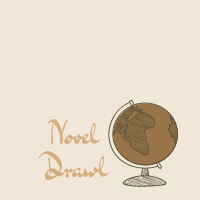The IQLA called me a TERF. Here’s why that matters.
I’m writing this post after the American 2024 presidential election. You all know how this went, and no, we don’t need to talk about it–we’re all exhausted. What we do need to talk about is that not only has it always been important, but it is more important now than ever to support Queer research. […]
Interspeech 2024
Realized I never announced the panel I would be speaking on, but I wanted to give a quick thank you to the folks organizing Interspeech 2024 for having me as a panelist on Speech Science, Speech Technology, & Gender. It was a shame most of us had to be remote, but for those of you […]
Graduated!
Hey folks! I have officially graduated from the CUNY Graduate Center with an MA in Digital Humanities. Thank you so much to my thesis supervisor, Dr. Matt Gold! My thesis can be read here: https://academicworks.cuny.edu/gc_etds/5795/Frankly, I have been through the ringer the last academic year, and thank you so much to everyone who has been […]
MapLemon Full Data Now on GitHub!
Hey folks! MapLemon data collection has officially finished! Here is the GitHub link: https://github.com/tdmmct/maplemon Stats: 54000 words346 participants40 US states; 6 Canadian provinces30 linguistic backgrounds57 transgender men84 transgender women124 non binary people; 73 amab, 46 afab65 cisgender women32 cisgender men
Keynote Talk Video – CU Boulder Love Data Week
On Valentine’s Day I had the honor of giving a keynote talk at CU Boulder for Love Data Week- Project MapLemon: Representing Diverse Identities in Data. Here is the link, with captioning and transcript available: https://vimeo.com/user134045997/review/917656688/43b2cddef7 Thank you to all those who made this possible, and CU Boulder for inviting and having me! Abstract: “MapLemon […]
I’m a “Keynote Speaker for What God Calls Abominable,” & I’d Never Want Anything Different.
I had the unfortunate experience this week that many Queer people often experience: my grandparents decided they don’t want a relationship with me because I’m gay. Everyone hopes that their research will help people, or at least that they will have some kind of impact on the world. Hell, it’s nearly an expectation that you’ll […]
PUBLISHED!
Nearly a month late (blame the holidays), I am SO proud to announce that MapLemon has been published in Digital Studies/Le Champ Numérique! It is open access, and can be viewed here: https://doi.org/10.16995/dscn.9665 Thank you so much to the editors for working with me extensively! And Happy New Year, everyone!
Thank you, GC Digital Initiatives!
Another wonderful lightning talk session down. It was great to see all the Digital Humanities work being done within CUNY! Thank you to the Digital Initiatives for the invite to speak. I love showing the results of Project MapLemon to the local community. I’d say see you next year, but I’ll have graduated, and hopefully […]
LanGeSex: The Conference We All Needed
I presented Project MapLemon at Language, Gender, & Sexuality at the University of Helsinki this October and was immersed in the most accepting academic environment I have ever set foot in. Amazing research, amazing people, and I truly hope there will be another LanGeSex in the future. I want to thank everyone there for this […]
Conference Trail Postmortem & Updates – FEAT. A Bonus Announcement!
Hello, world! The MapLemon team had a wonderful month gallivanting across the world to showcase our corpus. Our first stop was Keystone DH in Baltimore, MD, USA; then QUALICO in Lausanne, CH; and Corpus Linguistics in Lancaster, UK. We also touched on the successes of the EViL Lab through the lens of MapLemon during the […]


